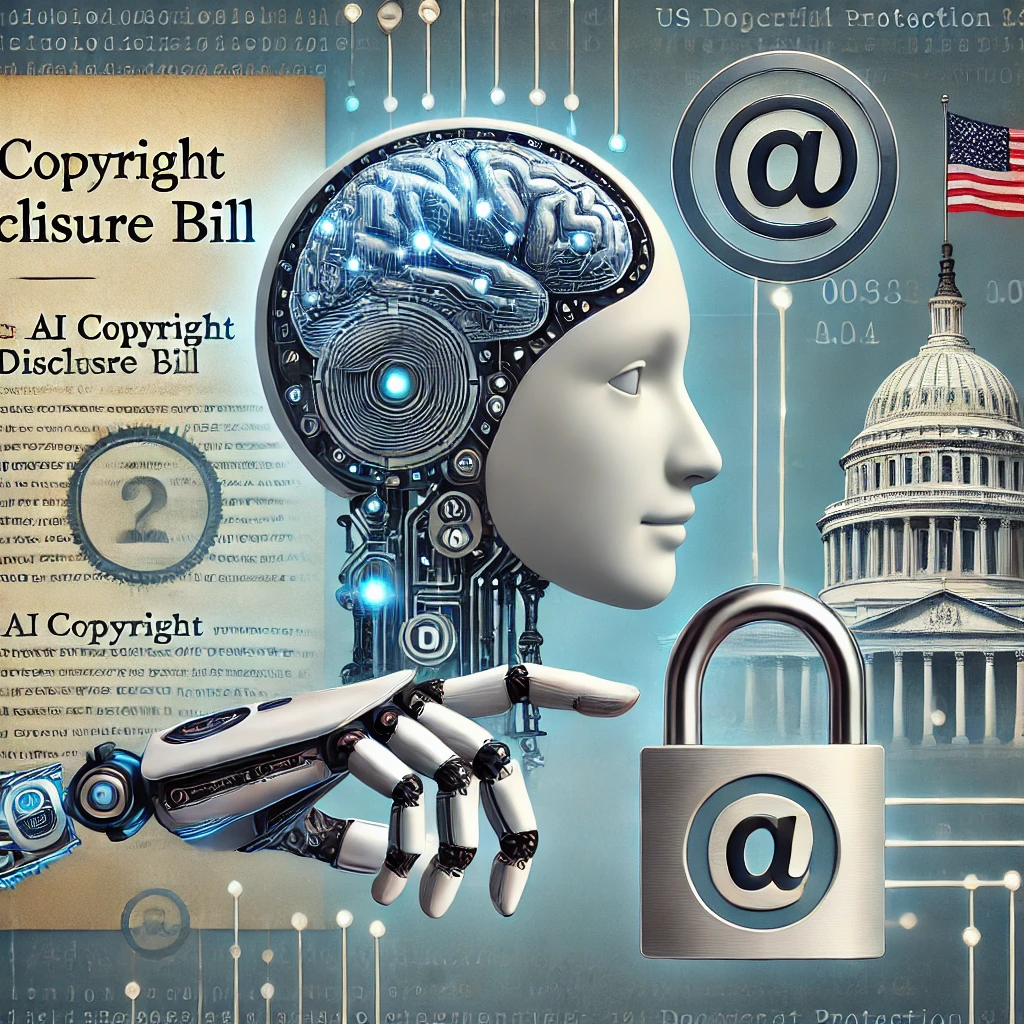The “Generative AI Copyright Disclosure Act,” introduced by Democratic Congressman Adam Schiff, requires AI companies to disclose copyrighted materials used in their development processes. This bill represents an important step towards balancing the advancement of AI technology with copyright protection. The bill was born out of concerns that AI companies might be illegally using copyrighted content to develop their tools.
According to the bill, AI companies must submit the copyrighted works included in their training datasets to the Copyright Office before releasing new generative AI systems. These datasets may include text, images, music, films, etc., and must be submitted at least 30 days before the AI tool’s public release. Failure to submit on time or at all will result in fines.
The bill does not intend to prohibit the use of copyrighted materials for AI training. However, it may pose a significant burden on companies developing generative AI systems, such as large language models and image generation AI, which require extensive datasets for training.
According to Billboard, the bill has garnered support from various organizations and unions, including the Recording Industry Association of America (RIAA), the Professional Photographers of America, the Screen Actors Guild-American Federation of Television and Radio Artists (SAG-AFTRA), among others. Duncan Crabtree-Ireland, SAG-AFTRA’s National Executive Director, commented, “Everything generated by AI ultimately derives from human creativity. That’s why we must protect human creative content, or intellectual property.”
On the other hand, OpenAI, the developer of GPT-4 and DALL-E, argued in a submission to the UK government in early 2024, “Legally, copyright law does not prohibit AI learning.” OpenAI also stated that without access to copyrighted works, their tools would cease to function. AI companies argue that restricting access to copyrighted works could hinder AI technology development.
Congressman Schiff remarked, “AI has the disruptive potential to transform our economy, political system, and daily lives. We must balance the immense potential of AI with the importance of ethical guidelines and protections. My Generative AI Copyright Disclosure Act is a crucial step in this direction. This bill promotes innovation while safeguarding creators’ rights and contributions. It ensures that creators are aware if their works are being used in AI training datasets. This respects creativity in the age of AI, balancing technological advancement and fairness.”
As AI technology progresses remarkably, it is crucial to ensure appropriate protection without infringing on creators’ rights. The Generative AI Copyright Disclosure Act holds the potential to contribute to this balance. The future challenge will be creating an environment where both AI companies and creators can coexist and respect each other.
